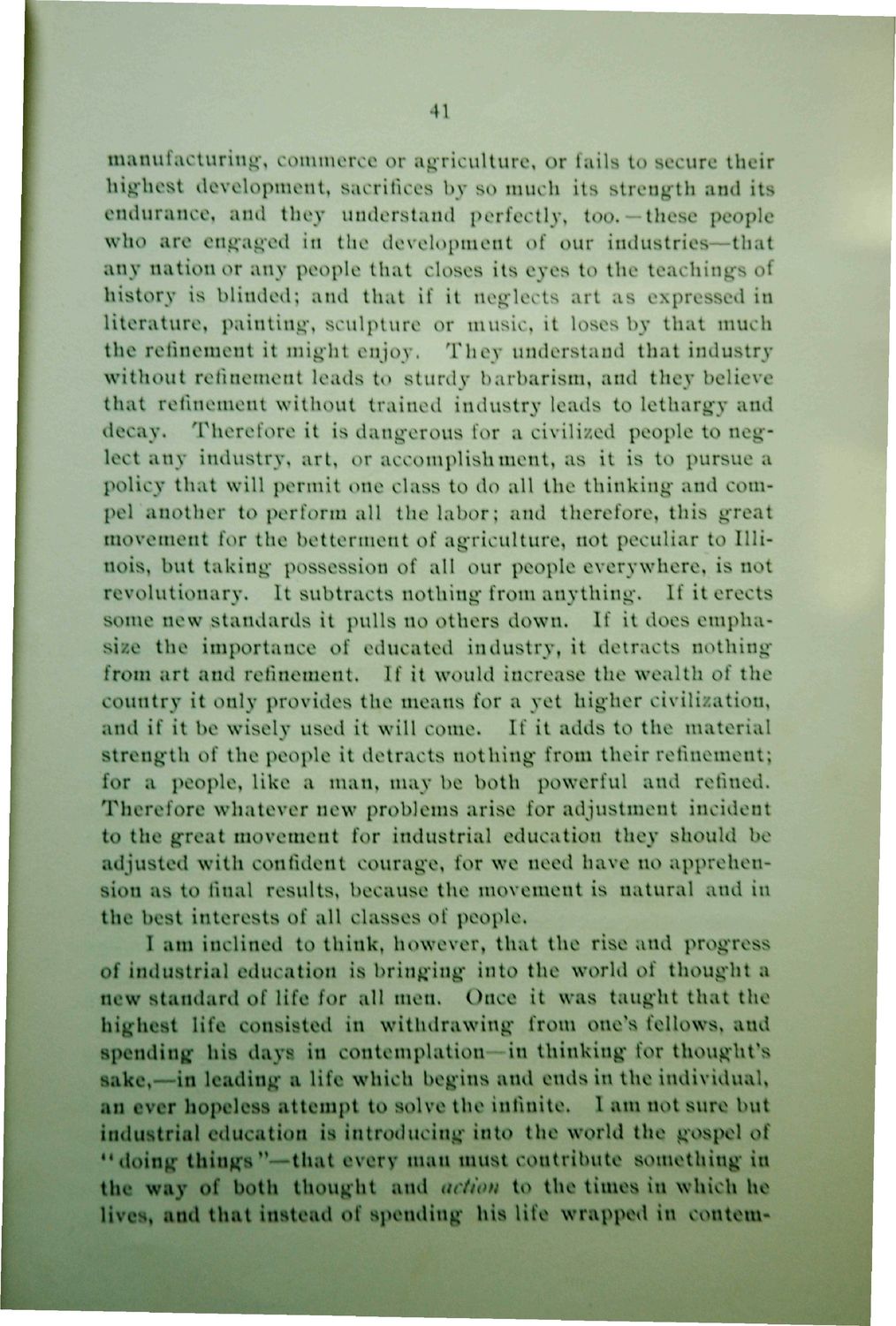| |
| |
Caption: Dedication - Ag Building
This is a reduced-resolution page image for fast online browsing.

EXTRACTED TEXT FROM PAGE:
41 manufacturing, commerce or agriculture, or fails to secure their highest development, sacrifices by so much its strength and its endurance, and they understand perfectly, too. —these people who are engaged in the development of our industries—that any nation or any people that closes its eyes to the teaching's of history is blinded; and that if it neglects art as expressed in literature, painting, sculpture or music, it loses by that much the refinement it might enjoy. They understand that industry without re linemen i leads to sturdy barbarism, and they believe that refinement without trained industry leads to lethargy and decay. Therefore it is dangerous for a civilized people to neglect any industry, art, or accomplishment, as it is to pursue a policy that will permit one class to do all the thinking and compel another to perform all the labor; and therefore, this great movement for the betterment of agriculture, not peculiar to Illinois, but taking possession of all our people everywhere, is not revolutionary. It subtracts nothing from anything. If it erects some new standards it pulls no others down* If it does empha* size the importance of educated industry, it detracts nothing from art and refinement. If it would increase the wealth of the country it only provides the means for a yet higher civilisation, and if it be wisely used it will come. If it adds to the material strength of the people it detracts nothing from their refinement; for a people, like a man, may be both powerful and refined. Therefore whatever new problems arise for adjustment incident to the great movement for industrial education they should be adjusted with confident courage, for we need have no apprehension as to final results, because the movement is natural and in the best interests of all classes of people. I am inclined to think, however, that the rise and progress of industrial education is bringing into the world of thought a new standard of life for all men. Once it was taught that the highest life consisted in withdrawing from one's fellows, and spending his days in contemplation—in thinking for thought's sake,—in leading a life which begins and ends in the individual, an ever hopeless attempt to solve the infinite. I am not sure but industrial education is introducing into the world the gospel of u doing things"—that every man must contribute something in the way of both thought and action to the times in which he lives, and that instead of spending his life wrapped in contem-
| |